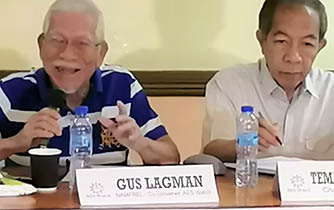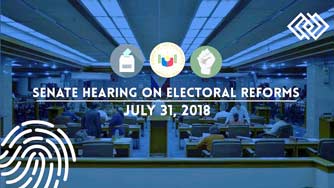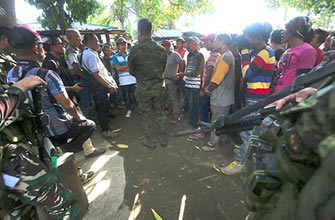CenPEG.news
May 11, 2019
The broad, multi-sectoral poll watchdog, Automated Election System Watch (AES Watch), says that unless glaring vulnerabilities of the AES and non-compliance with major provisions of RA 9369 are resolved the May 13 mid-term elections will create credibility issues. This became the common concern of speakers at the AES Watch’s press conference “The Continuing Vulnerabilities of the Comelec-Smartmatic Automated Election System” held May 8, 2019 at the University of the Philippines in Diliman, Quezon City.
Prof. Temario C. Rivera, Board chair of the Center for People Empowerment in Governance (CenPEG) and co-convener of AES Watch, told reporters of the constraints to addressing the Smartmatic-supplied AES technology issues in the absence of public access to election data.
Dr. Nelson J. Celis, AES Watch spokesperson, said that system vulnerabilities such as the lack of credible source code review lead to high risks of irregularities such as fraud. Similarly, Evita L. Jimenez, co-convener of AES Watch and CenPEG executive director, foresaw more election protests happening after the mid-term polls.
Augusto “Gus” Lagman, former commissioner of the Commission on Elections (Comelec), batted for transparent vote counting at the precinct level noting that the Smartmatic system, used in past three elections, leaves every voter wondering whether his/her vote was counted. Lagman, national chairman of the National Movement for Free Elections (Namfrel), is also AES Watch co-convener.
Explaining the continuing vulnerabilities of the AES, Rivera mentioned the lack of a comprehensive and credible source code review and the lack of digital signatures. Rivera said these and other vulnerabilities of the election technology are the result of the non-compliance of critical provisions of the election law, RA 9369 since it was legislated in 2007.
Other speakers were Rochelle Porras of the Workers Electoral Watch (We Watch) and Namfrel secretary general Eric Alvia.
AES Watch was founded in January 2010 with 40 affiliate organizations and institutions from all over the Philippines including the Philippine Computer Society Foundation, Center for People Empowerment in Governance (CenPEG), UP Alumni Association, DLSU computer department, TransparentElections.org, National Council of Churches in the Philippines (NCCP), Computer Professionals Union (CPU), and the labor election watch group WeWatch. AES Watch convened the first national conference on alternative election systems, Filipino IT for Elections (FIT4E), on June 13, 2011 and, together with the PLM, sponsored the public presentation of Filipino IT-designed election technologies such as Tapat and Patas in 2015. AES Watch published a book, WAS YOUR VOTE COUNTED? Unveiling the Myths about Automated Elections, in April 2013. AES Watch also conducted nationwide monitoring systems during the elections in 2010, 2013, and 2016.





Leave a Reply